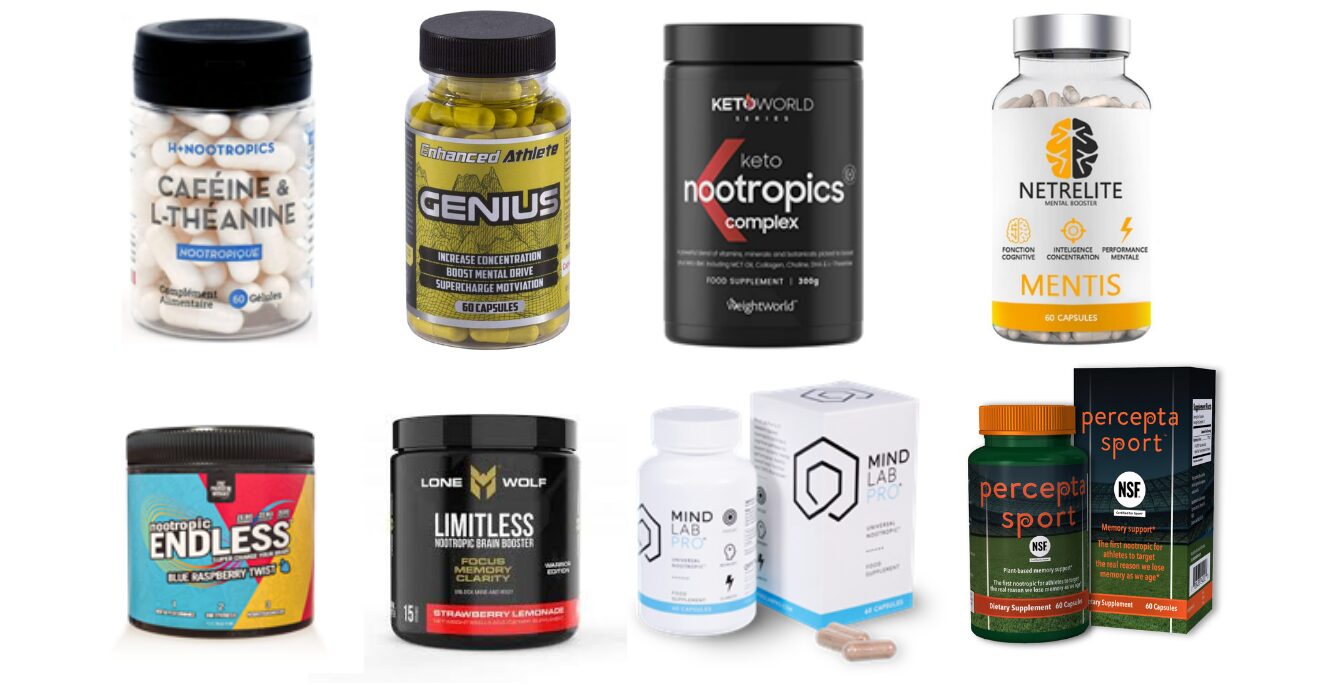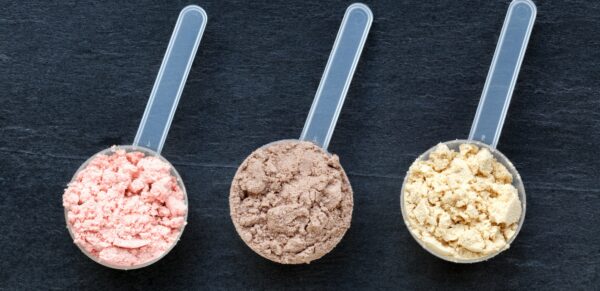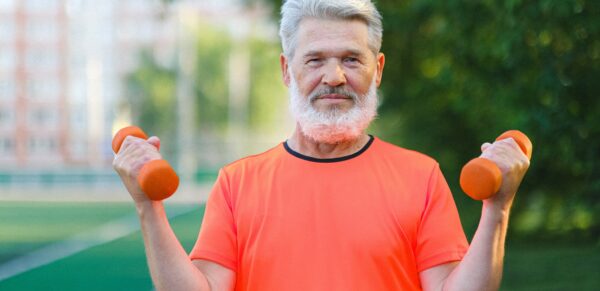Sports nutrition: an opportunity for nootropic products
Nootropics, a new application in sports nutrition
The sports nutrition market has grown considerably over the past decade. Brands want to bring new product opportunities to consumers, and to do this they invest in innovating beyond traditional product uses (building muscle mass, fat burning, recovery, etc.).
To innovate, all of an athlete’s needs must be taken into consideration. Looking after not only their muscles… But also their brains! There is an application which is as yet little-developed in nutraceuticals: mental and cognitive preparation, along with sports stress management. A new product category is emerging: nootropic dietary supplements.
They are gaining a place in the sports nutrition market due to their ability to increase motivation, intensify training and help athletes to concentrate 1.
Nootropics are natural or synthetic substances that stimulate the brain, with the ultimate aim of improving cognitive performance. Nootropics work on the brain in different ways, particularly as regards improving memory, attention, concentration, alertness, motivation, mood, stress resistance and relaxation 1. The term nootropic was coined by chemist and psychologist Dr Corneliu Giurgea in 1972.
Sports nutrition brands have already seized the opportunity to develop nootropic supplements such as NOOMIND, H+NOOTROPICS, KETOWORLD , NETRELITE and Endless.
How do nootropics work?
Mode of action
Nootropics act in several ways. They make it possible to adjust the information received by neurons and the availability of neurotransmitters such as dopamine or serotonin. They also promote brain oxygenation by increasing the secretion of neurotrophic factors that improve brain plasticity conducive to learning, as well as other cellular mechanisms.
Fields of application
Nootropics offer plenty of sports nutrition applications:
- Brain protection: they help maintain and renew brain cells that may facilitate normal ageing of the brain 3.
- Stress resistance: nootropics have properties that combat stress and can thus improve athletes’ performance, helping them to remain calm and focused during competitions 1. Nootropics play a part in regulating brain signals. For example, L-theanine, an amino acid found abundantly in green tea, contributes to relaxation 2, as do Bacopa Monnieri, L-tyrosine and Ginseng Panax.
- Cerebral blood flow: some nootropics can promote blood flow to the brain. The additional oxygen thus supplied enables glucose to be converted to energy and the brain to perform better
- Neurotransmitters: these are compounds that send signals in the brain and body. There are many different types that can change our mood, affect the time we get up or go to bed, and even our appetite 2.
- Learning: some sports require learning combinations of movements, or processing / storing information. Athletes can benefit from nootropics that contribute to cognitive learning processes
- Attention: in sports that rely on reflexes or concentration, nootropics can provide a competitive edge by enhancing these abilities.
Nootropic ingredients and substances
There are many nootropic ingredients and/or substances, a few of which are listed below:
- Caffeine is undoubtedly the best-known nootropic substance. It helps to improve alertness and concentration by stimulating the central nervous system (CNS) to produce adrenaline. Caffeine has synergistic effects when combined with L-theanine.
- L-theanine works in synergy with caffeine to increase concentration. Clinical studies demonstrate a 2:1 L-theanine/caffeine ratio.
- Iron and zinc contribute to intercellular communication in the brain, and therefore to cognitive functions. Both of these micronutrients provide a neuroprotective effect for athletes.
- Choline promotes good liver function essential for athletes’ metabolism, but this is not all…. it also permits the production of acetylcholine, a chemical involved in the transformation of processed information into actions 5.
- Rhodiola is an adaptogenic plant. Its standardised 3% rosavin and 1% salidroside extracts heighten resistance to physical and psychological stress 6 and improve mental health in general 7.
- B vitamins are also of value for improving cognitive performance. Vitamin B5 increases the secretion of neurotransmitters. In addition, vitamins B5, B6, B9 and B12 play a major role in energy metabolism, promoting the use of carbohydrates and fats as energy substrates for the brain. Vitamins B5 and B6 also contribute to the synthesis of neurotransmitters such as acetylcholine and serotonin, which improve concentration and attention.
How to develop nootropic supplements
Choosing good nootropic ingredients
You should select active ingredients that are scientifically proven to be effective. It is likewise essential to ensure that the ingredients are proven to have no side effects and that their safety is fully confirmed. They must be proven to be non-toxic and free from doping, stimulating or sedative effects. And lastly, prioritise traced-origin ingredients, much demanded by athletes who want natural solutions for optimising their performance without any doping risk.
Choosing the right dosage form
Nootropic supplements can come in capsule, powder or liquid form. The “drink” option is very popular because it meets athletes’ expectations perfectly, contributing to their hydration and used as a substitute for coffee or energy drinks by some.
Choosing the right manufacturer
Since 2001, JLB DÉVELOPPEMENT has been supporting sports nutrition and food supplement brands in the development and manufacture of their products. A leader in trends and innovation, JLB DÉVELOPPEMENT is at your disposal to discuss your dietary and nutraceutical projects.
Sources :
- Silverman, Stuart. (2015). Nootropic Drugs – A Review. 0.13140/RG.2.1.1371.2805.
- Sakhare Vitthalrao, Leena. (2018). NOOTROPICS AGENTS: PHARMACEUTICAL ASPECT, COMMON EXAMPLES AND THEIR APPLICATIONS. Journal of Drug Delivery and Therapeutics. 8. 59-61. 10.22270/jddt.v8i5-s.1940.
- Samaila Chiroma, Musa & Mat Taib, Che Norma & Mohd Moklas, Mohamad Aris & Taufik Hidayat Baharuldin, Mohamad & Amom, Zulkhairi & Jagadeesan, Saravanan. (2019). The use of nootropics in Alzheimer’s disease: is there light at the end of the tunnel?. 6. 2937-2944. 10.15419/bmrat.v6i1.513.
- Kumar, K & Srija, Mitta & Sandeep, D & Davarika, Ramisetty & Sai Mounica, Gunda. (2016). NOOTROPICS-MEMORY BOOSTERS.
- Suliman, Noor & Mat Taib, Che Norma & Mohd Moklas, Mohamad Aris & Adenan, Mohd & Baharuldin, Mohamad & Basir, Rusliza. (2016). Establishing Natural Nootropics: Recent Molecular Enhancement Influenced by Natural Nootropic.



